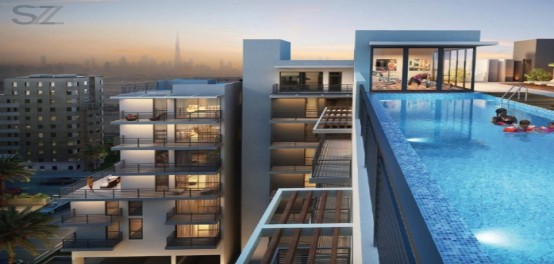Make sure you have your checklist ready before trying to buy an apartment in Dubai
Buying property can be made less complex with the help of a good agent. For those looking to buy a flat or villa in Dubai, navigating the process from search to title deed transfer may seem like a daunting task. However, if you have a checklist at each step you are more likely to ensure a smooth process.
Below is a step-by-step guide to buying property in Dubai.
1. Firstly decide between off-plan or the secondary market
One of the first steps is to decide whether you want to purchase off-plan, i.e., under-construction or something which is ready. The reason behind the purchase (for investment versus end use), availability of capital (whether it is sufficient to meet the down payment and payment plan for off-plan property or equity requirements of a resale).
2. Property search
For investors, given that the market outlook does not indicate steep capital appreciation in the near future, market research is essential to find a property with the right combination of high rental yield and low vacancy risk. Generally, studios and one-bedroom apartments have higher yields than three-bedroom apartments and large villas. If the purpose is self-use, establish a budget and identify key locations based on important requirements, such as actual unit size, distance to workplace, schools, retail and public transport.
Hire a registered broker to tackle the paperwork, negotiation and arrange viewings to compare multiple units.
For off-plan property if you are not using a broker look at the developer’s reputation, particularly with respect to quality, timely delivery of units and past projects. It is essential for buyers to visit show homes to get an idea of what they can expect.
3. Financing
The next step varies for mortgage and cash buyers and involves pre-approvals for the former. Many mortgage institutions offer the option of “pre-approved financing”, which permits the buyers to have their loan approved prior to choosing a property. This expedites the process and satisfies sellers who require financing before signing the memorandum of understanding (MOU)
The following documents are typically required for mortgage approval of UAE residents:
* Passport copy with visa page of the
purchaser
* Copy of Emirates ID
* Proof of current address such as Ejari and Dewa bill
* Salary certificates or evidence of regular income
* Bank account statements for three to six months, which reflect the
corresponding salary credit
* MOU for the sale of the property
* Title deed of the property to be purchased
* Seller’s passport copy
* No-objection certificate (NOC) from the developer
For cash buyers, they must ensure sufficient funds are available in their bank accounts or through restructuring of other investments. Banks typically extend a lower loan-to-value (LTV) ratio to buyers with an existing property in Dubai.
4. Sales agreement
For off-plan purchases, the buyer needs to submit an application form to the developer, which outlines the terms and conditions of the agreement. If the property is yet to be completed, ensure the purchase agreement includes the completion date and the compensation awarded. If the property is not completed by a given time frame.
For a secondary market sale, the sales contract between the seller and buyer or the MOU is registered with the DLD, outlining the terms and conditions of the agreement. The buyer can request for an “opt-out” clause in the MOU, indemnifying the buyer against the loss of the deposit if the property’s bank valuation is lower than expected.
Read the MOU carefully as it may include additional charges, which may be stated within the document. There is usually a 10 per cent security deposit, often a cheque payment, in a secondary sale.
5. Title deed transfer
For off-plan property direct from the developer, Oqood is issued at the developer’s office. The list of documents required may vary from one developer to another, but typically this includes the sale and purchase agreement, buyer’s passport and Emirates ID.
All transfers are done by a Real Estate Registration Trustee. For secondary sales, the DLD transfer charges are 4 per cent of the purchase price plus Dh580. The buyer and seller may each pay half of the 4 per cent transfer fee if stipulated in the MOU. A fee of Dh2,000 for transactions below Dh500,000 and Dh4,000 for transactions above Dh500,000 is payable to the Real Estate Registration Trustee. Mortgage registration charges payable to the DLD amount to 0.25 per cent of the loan value, plus Dh290 as a standard charge.


